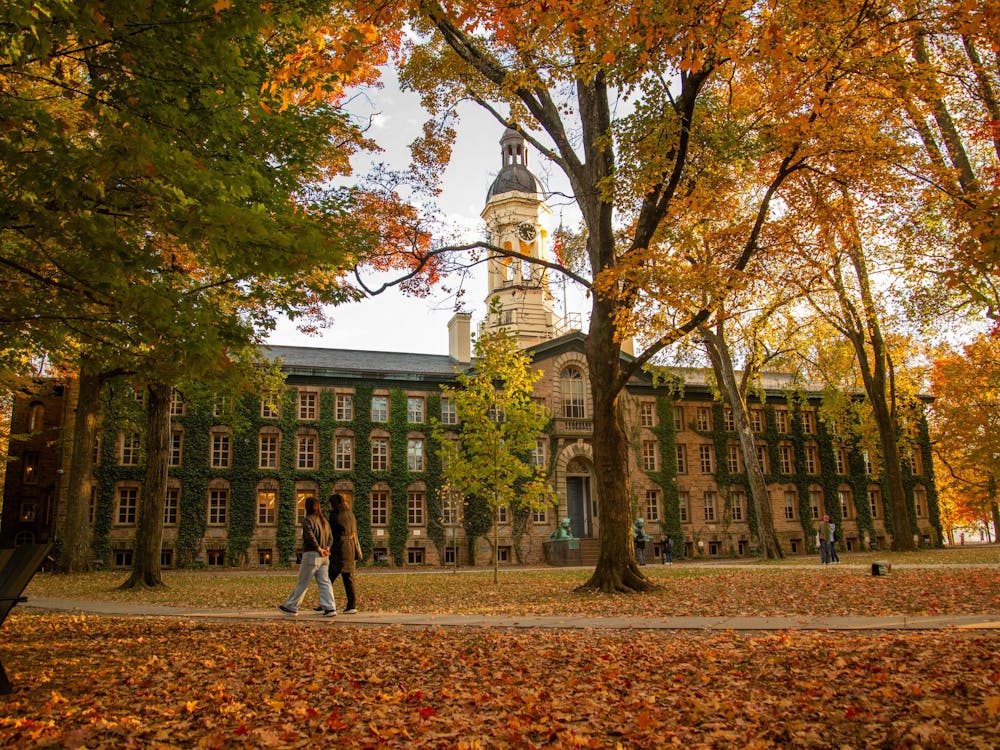Next time you read an apocalyptical article about the impending doom of the world due to the "clash of civilizations" between the Muslims and [insert non-Arab, non-Muslim nation here] take a moment and think for yourself: amidst the debates about free speech and freedom of the press that have been circulating around the globe over the past few months, a double standard has been applied to a large part of the global community. The portrayal of Islam in the media has long been questionable, but the situation in Denmark is the straw that broke the camel's back. The cartoons and the resulting chaos represent the escalation of a deeper problem.
Why has Islam become the demon monolith of the world which threatens to destroy all that is good and peaceful? People identify Islam with something that threatens their very being and all that they stand for: democracy, equality and liberty. Yet, this fear is perpetuated by the stereotype of a fight between good and evil, the world against Islam, a stereotype which has come to distort world public opinion.
Take the example of Israel and Palestine. World leaders, primarily Condoleezza Rice and the Bush administration, have supported the idea of democracy in Palestine, furthering their goal of democratizing the Middle East. Their wish, however, was granted in a form deemed undesirable; they got democracy in Palestine, but it brought Hamas along with it. Now this has people up in arms around the world, fearing for Israel's safety. Suddenly, democracy in Palestine is a threat. Palestine, a non-sovereign entity without borders whose economy relies heavily on Israel, has somehow become a threat to the fourth largest army in the world and sole nuclear power in the Middle East. It's a classic lose-lose situation. Democracy has not legitimized the Palestinian's needs or choices. Instead, the Palestinians are perceived as even more dangerous and are rarely referred to as anything other than "terrorists." They can't dispel any of the wrong assumptions about them because global public opinion is already skewed by stereotypes about Islam and Muslims.
This is just one of the many situations producing feelings of anger, frustration and helplessness in the Muslim community. Take the example of Denmark where discriminatory, hateful images are condoned as freedom of the press. BBC News reported that Bush signed the Global Anti-Semitism Review Act of 2004 to allow the United States to monitor anti-Semitism around the globe, rating countries in terms of their treatment of Jews. Submitted as a law against racism, this regulation has the significant loophole of not being extended to other minorities, including, of course, Muslims. Was this law even considered a possible infringement of free speech? It didn't have to be since it did not raise the specter of Islam.
Arabs around the world were outraged both at the Islamophobic message of the Danish cartoons and at the double standard by which slurs against Islam are permitted in the West while attacks on other faiths are not. When Muslims raise their voices against discrimination in Denmark, they are hushed and told to keep quiet in the name of free speech. And when they protest in nonviolent ways such as boycotts or sit-ins, they receive no media coverage. Not until loud protests and violence splatter American screens does anyone pay attention. In this light, Muslims are the ill-tempered brats of the world, throwing tantrums and needing discipline from good old Uncle Sam.
Try to understand our frustration when the press deems Muslims as "unruly thugs," "fanatical theocrats," "religious lunatics" and "extremist terrorists," that is, the ultimate enemy of the modern world. In reality, the Muslim community is no different from any other community — committed to the universal values of freedom, justice and equality that underlie all religious communities. Muslims respond defensively to their portrayal in the West because they perceive the hostility towards both the Muslim world and Muslims living in the West as a legitimate threat. Islam is a religion with a long tradition of tolerance and coexistence with other religions, and the Muslim community asks only for basic tolerance and respect. Sarah Dajani is a freshman from St. Petersburg, Florida. She can be reached wat sdajani@princeton.edu. Emily Norris is a freshman from Brookline, Massachusetts. She can be reached at enorris@princeton.edu.







